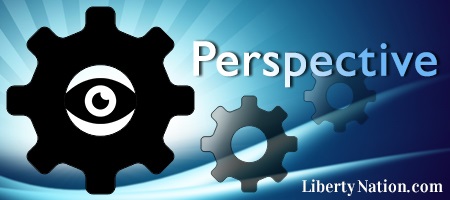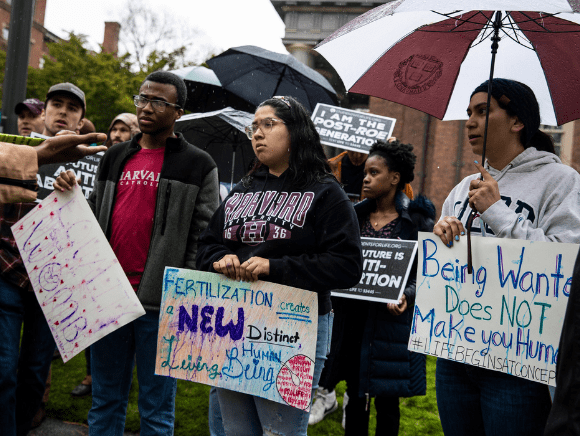It’s a well-known agreeance among all Americans, no matter their political affiliation, that the population of left-leaning students at Ivy League schools immensely overpowers the number of conservatives. But now, a Harvard student newspaper has confirmed that a mere 6.4% of survey respondents leaned conservative after attending the University. For a college that focuses on and preaches the importance of diversity, how is there essentially no diversity at all come when it comes to political thought?
Survey Findings
 Conducted by the infamous Harvard Crimson, the survey reached out to 1,269 undergraduate seniors. Forty percent of that number responded and only 4% said they lean conservative, while 2.4% lean very conservative. Definitions or elaborations on what The Crimson considered conservative and “very conservative” were not provided, but it’s based on how the respondents identify themselves.
Conducted by the infamous Harvard Crimson, the survey reached out to 1,269 undergraduate seniors. Forty percent of that number responded and only 4% said they lean conservative, while 2.4% lean very conservative. Definitions or elaborations on what The Crimson considered conservative and “very conservative” were not provided, but it’s based on how the respondents identify themselves.
The paper also asked what political positions students had prior to starting their time at Harvard for comparative purposes. About seven percent (7.1%) identified as conservative before attending. That’s a 0.6% drop-off which is not a lot, but neither is it the main issue here. When students go to college, their politics tend to shift left if they are moderates or Republicans.
Just over 40% (40.7%) identify as progressive, 27.9% identify as very progressive, and only 1.4% see themselves as “apolitical.” Ninety-three percent of graduates hold a negative view of former President Donald Trump, while 51.8% hold a positive view of President Biden. The majority of the graduating class clearly leans to the left, but does this make Harvard better or worse?
To no surprise, 68.5% of respondents hold a favorable view of Dr. Anthony Fauci. About forty-two percent (42.5%) have a constructive view of President Biden’s withdrawal from Afghanistan, while 21.9% do not. It’s not clear based on the report whether the question was based on the simple withdrawal or the manner in which we withdrew.
During a survey conducted in early 2021 – again by The Harvard Crimson – faculty members’ political affiliations were similar. 47.9% identified as liberal, 29.7% as very liberal, 19.5% as moderate, 2.5% as conservative, and 0.4% as very conservative. Some students expressed to the Crimson that it is “pretty apparent” that liberal professors do not welcome views from the other side of the political spectrum on controversial issues such as affirmative action. One student observed that conversations among faculty and students treat topics such as affirmative action as if there is one correct opinion and all other points are invalid.
Absent Political Diversity
It’s safe to assume Harvard University has no issue with being predominantly liberal. But for a school that preaches diversity, equality, and acceptance, why don’t those guidelines apply to political thought? According to their website, “Harvard’s commitment to diversity in all forms is rooted in our fundamental belief that engaging with unfamiliar ideas, perspectives, cultures, and people creates the conditions for dramatic and meaningful growth.”
 But is Harvard delivering on its commitment? As of 2020, 39.7% of the Harvard population was white, 13.7% Asian, 9.56% Hispanic or Latino, 6.56% Black or African American, 3.94% “Two or More Races,” 0.197% American Indian or Alaska Native, and 0.118% Native Hawaiian or “Other Pacific Islanders.” In all U.S. colleges, Harvard ranks 5th in overall diversity, #215 in racial-ethnic diversity, and #181 in male/female diversity.
But is Harvard delivering on its commitment? As of 2020, 39.7% of the Harvard population was white, 13.7% Asian, 9.56% Hispanic or Latino, 6.56% Black or African American, 3.94% “Two or More Races,” 0.197% American Indian or Alaska Native, and 0.118% Native Hawaiian or “Other Pacific Islanders.” In all U.S. colleges, Harvard ranks 5th in overall diversity, #215 in racial-ethnic diversity, and #181 in male/female diversity.
But when it comes to diversity of thought, this survey shows that Harvard is severely lacking. Groupthink is inevitable when everyone in a room holds the same view on a philosophy, policy, idea, or practice. In a time where conservatives are scared to speak in an academic setting, the likelihood of one willingly disagreeing with 25 other classmates on a political issue is slim to none.
So, for a school that preaches diversity in all aspects, why doesn’t political diversity count? To stimulate the best conversations and bridge the partisanship in this country, why wouldn’t arguably the best University in the United States, which breeds many of this country’s leaders, want to play a pivotal role in crafting tolerant people? Universities are vital in fixing the social issues our country faces. Americans have to work with or be friends with people of the other party. There is, arguably, already too much hate and disdain amongst Americans. Colleges can further the divide by aligning politically and suppressing speech and expression, or they can become the key to bipartisanship and unity. If Harvard remains politically one-sided, it will contribute nothing toward unifying this country.




